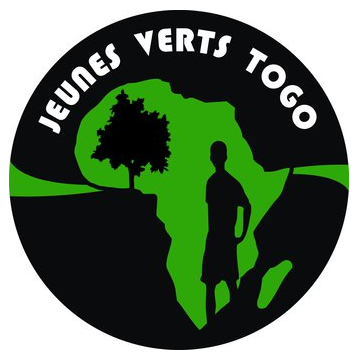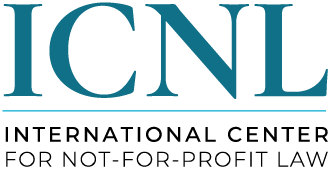by Jimm Chick Fomunjong
There have been resounding calls to make financial resources available to civil society organisations (CSOs) in West Africa. Embraced within the overall concept of ‘localisation of aid’, this remains an indispensable missing component within the development equation.
Localisation of aid has been widely preached and considered as a panacea to the myriad of problems plaguing the advancement of the humanitarian and development aid sectors of our society. However, it seems this is not quite the case. This is partly because frontline actors have decried the alarming rate at which resources at their disposal to respond to the gruesome humanitarian and developmental challenges are grossly inadequate.
It can also be attributed to the fact that many international non-governmental organisations (INGOs) overtly (but predominantly rhetorically) championing the course towards localisation of aid are not sufficiently taking practical measures to ensure that the localisation of aid agenda is a living reality.
Hence, one can confidently assert that localisation of aid seems to be another scheme designed to meet the expectations of the initiators of the scheme.
However, ideally, such a scheme [localisation of aid] should be mutually beneficial for all stakeholders in the ecosystem. Specifically, it should work in the interest of frontline actors, especially the vulnerable actors plagued by the manifestations of the societal challenges and those at the heart of the action; finding ways to address them to the best of their abilities.
As positioned by the UN InterAgency Standing Committee, localisation seeks to enable a meaningful engagement and leadership of local and national actors in humanitarian response, enhancing capacity exchange and increasing direct funding.
However, identified targets defined in the Grand Bargain Agreement have not been met.
As highlighted by Maliasili, “globally, Indigenous Peoples and Local Communities organisations and communities receive less than 1% of all climate funding, while African organisations receive approximately only 5% to 10% of private philanthropic funding invested in Africa.” This is woefully inadequate for the great work they do.
Furthermore, when I hear civil society actors clamouring loudly for ‘more access to funds by local actors’ in 2023, I begin to wonder whether the Grand Bargain agreement of 2016 is still worth its salt almost a decade after it was agreed upon.
A core proposition of the agreement is to facilitate access to greater funding for national and local responders. However, when these ‘national and local responders’ still highlight recommendations like the one above at major stakeholder gatherings, it becomes clear something is not working well or working at all. It further serves as testimony that the earmarked 25 per cent funding for national actors and responders is definitely not coming to them.
One of the conspicuous commitments signed by the over 65 signatories to the Grand Bargain agreement is to, as much as possible, ‘channel 25 per cent of humanitarian finance as directly as possible to local actors’.
Is this happening in a satisfactory way in today’s world? I’m sure your response is as good as mine!
‘Not at all’ is the answer as evidenced in an independent review of the Grand Bargain in 2021. This report holds that there has been a substantial drop in funding reaching local actors directly.
Recently, a study by Save the Children Denmark, the West Africa Civil Society Institute, the Global Fund for Community Foundations, Star Ghana Foundation and the NEAR Network titled I help them in my own way – exploring local humanitarian action in Burkina Faso and Mali purports that only about one – two per cent of the earmarked resources are actually channelled to countries facing humanitarian crises.
Where then do we go from here? What could be the most effective panacea for this menace?
Importantly, how can those of us operating within the development and humanitarian ecosystem ensure that those being supported are at the centre of key actions that affect their lives, and, have access to funds needed to make meaningful redress of woeful situations at satisfactory levels based on their needs and demands?
An online discussion with diverse stakeholders on the research conducted by Save the Children Denmark and partners created an avenue for participants to re-echo some of the simple and urgent actions that can be taken to address the barriers to full implementation of the localisation agenda.
Make adequate funds accessible: First and foremost, the need to make available more direct financing to local actors and responders was raised. It was overwhelmingly resounded that, those who are naturally at the fore front of the humanitarian and development challenges facing them, should be granted access to sufficient funds to lead efforts to address these challenges.
Furthermore, in a study carried out by the West Africa Civil Society Institute (WACSI), a good number of CSOs in the global south that participated in the study highlighted the need to enhance their commitments to release more funds directly to their organisations.
If this clarion call is heeded to, it may require that more deliberate efforts are made to move beyond the one – two per cent shift in financial flows to southern based actors. My worry however is that, if it took powerful institutions and countries over five years to achieve this below the belt feat (as opposed to the 25 per cent target), in how many years would we see veritable flows of resources that would reach a satisfactory level?
Context matters: It was further highlighted that local actors should be actively involved in strategic decision-making moments and programming actions that concern them. ‘For localisation to be effective, communities must feel involved’, a participant noted. To achieve this, it is worth taking into account the proposals and cultural realities of communities.
Transparency and accountability: It is important for stakeholders to be transparent and accountable with the finances they access and use for development and humanitarian causes. Although this recommendation is relevant for all stakeholders; both from the supply and demand sides, emphasis was particularly referenced to civil society organisations responding at the frontlines to humanitarian and development challenges.
Research: Further to the above, there has been a critical need to make available more information pertaining to programmes within the development and humanitarian spheres, their status quo, challenges, successes and operational lessons. Such should be promoted by frontline actors. While some actors like the WACSI among others are at the fore front of such endeavours, it is important that more actors in West Africa should take ownership of, and lead processes aimed at documenting existing knowledge pertaining to the extent to which the localisation agenda is being realised.
While the above-mentioned are critical, it remains obvious more needs to be done to ensure their full realisation, hence, palpable gains in the sector. This therefore calls for an urgent need to move from rhetoric to action with regards to ensuring that the localisation agenda exists as a veritable game-changer in the sector that revolutionalises the latter.
While more efforts are being fed into the achievement of the above, civil society actors in the global south who are at the frontline of the gruesome humanitarian and development challenges are called upon to leverage the assets in their communities to the fullest. “Mobilise resources locally”, a participant at the online session emphatically noted. This is equally important because it will provide a gateway for resources to be generated locally to champion locally-led development efforts. It further aids in promoting ownership of such agendas and paves way for leadership.
At this juncture, it is imperative for relevant actors to act more and overhaul the mind blocks and systemic barriers to the localisation agenda. To do this, stakeholders need to make more and adequate funds accessible to local actors, make use of contextual realities, be more transparent and accountable in resources deployed, and engage in relevant research.
About the author
Jimm Chick Fomunjong
Jimm Chick Fomunjong is the Head of the Knowledge Management and Communication Units of the Institute. He has over ten years’ experience as a journalist and a development communications expert. He has a vast experience in supporting African organisations to strengthen their internal and external communications, building and sustaining relationships with the media and, leveraging on the power of social media to promote their mission. He is also excellent at supporting organisations to set up and operationalise functional communications and knowledge management systems. He has a deep passion and expertise in supporting Africans and African civil society organisations to document their praxis, share and learn from experiences documented from the African civil society sector.



